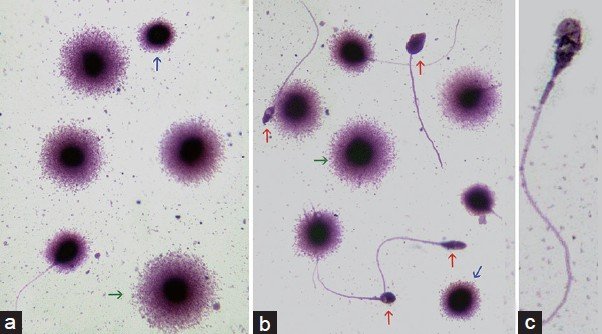
DFI stands for for DNA fragmentation index and for a successful pregnancy to occur, the presence of healthy and motile sperm is a prerequisite. The quality and integrity of sperm are the main criteria that determine its motility, concentration as well as its morphology. Due to many factors, the sperm count, as well as its construction, got damaged.
The reasons may be due to unhealthy diets and lifestyle, as well as environmental and occupational factors like pollution, advanced age, elevated testicular temperature due to use of laptops, computers or internal, like production of Reactive Oxygen Species (ROS) within sperm cells, varicocele, poor chromatin compaction, sperm apoptosis, etc.
These various factors collectively contribute to male infertility or subfertility. Over 15% of married couples face fertility problems, and 50% of these cases are caused by male factor infertility.

Without a diagnosis of sperm, opting for methods like IVF treatment in Kolkata is also non-productive. So it’s better to choose a way that gives one a clear way to know its sperm’s health condition for medical treatment.
One such modern treatment is the DNA fragmentation index (DFI) test. This procedure is a superior and analytical tool used to evaluate the degree of fragmentation of sperm. The procedure offers far better results than traditional tests, detecting details that are ahead of regular methods.
DFI can be done by terminal deoxynucleotidyl transferase-mediated deoxyuridine triphosphate nick-end labeling (TUNEL) assay or by Sperm Chromatin Structure Assay (SCSA), in situ nick translation (ISNT), or, more simply, by Comet Test.
These tests directly measure DNA damage and have shown correlations with assisted reproduction results. The assessment value of DFI acts as an independent key for the evaluation of semen quality, which led to be inclusion in the semen studies.
It should also be remembered that all these studies do not have marked cut-off levels, and each method has its advantages and disadvantages.
For consultation contact: Renew Healthcare – Best IVF clinic in kolkata
During IVF, you may hear terms like "Grade A embryo," "blastocyst quality," or "ICM and TE grading." Many couples feel...
The IVF journey can be one of the most emotionally intense experiences a couple faces. From hormone injections and medical...
Planning a pregnancy is one of the most meaningful steps in your life — but the journey doesn’t begin only...
Male fertility is closely associated with the health of sperm. A healthy sperm count and strong motility are essential for...
Meet Priyanka, a busy marketing professional. Lately, her periods have become heavy and unpredictable. Cramping disrupts her workday, and she’s...
Role of IVF in Overcoming Infertility Challenges in Endometriosis Endometriosis is an often painful disorder in which tissue similar to...
Journey towards parenthood Infertility and childlessness can be challenging journeys for couples to navigate. The emotional and physical toll of...
The "Save the Sibling" Program "Save the Sibling" program, a collaboration of Renew Healthcare, Cordlife, and HCG EKO offers hope...
What is PCOD? PCOD, also known as Polycystic Ovary Syndrome, is a common hormonal disorder that affects women of reproductive...
Intrauterine insemination aka IUI is a common fertility treatment that many couples opt for having a biological child. The experts...
